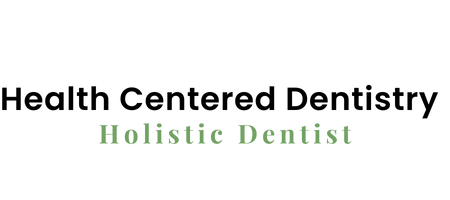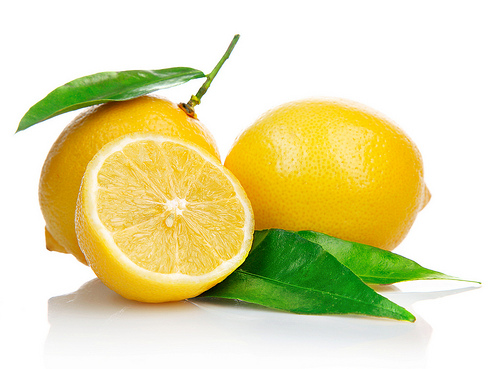One of the most consistent findings in all chronic illnesses (from gum disease to tooth decay to heart disease to cancer, arthritis and heavy metal poisoning) is the tendency for the body to become more acidic than ideal. The pH of the blood is one of the most tightly controlled parameters in the human body.
One of the 7 ways that the body buffers this acidity is to take phosphate ions from the bone. Unfortunately, attached to these phosphate ions are calcium ions, which are subsequently discarded. This excess, unbound calcium may show up as tartar on our teeth (a common finding but by no means normal), hardening of the arteries, kidney stones, calcifications in parts of our brains, etc. To illustrate, have you ever heard of “calcium channel blocker” drugs for high blood pressure? How about taking calcium supplements and developing more tartar on your teeth? Could it be that the calcium is not being absorbed into the bone? It can’t be absorbed if the body is throwing it away.
Healthy balanced body chemistry is foundational to healthy gums, teeth, jaw joints, and all the tissues of the mouth as well as to the rest of the body. What follows is a simple, safe way to begin the day and to set the chemistry of our bodies. If you have any medical condition that might conflict with this protocol, be sure and check with your physician.
First thing in the morning,
1. Squeeze 2 tablespoons or more of natural lemon juice into about 4 oz. of water. You can also add organic apple juice (natural and unprocessed), and apple cider vinegar to the mix. Make sure that both the apple juice and the apple cider vinegar are the kind that are cloudy and must be shaken before use. You must drink all that is in the glass. Pure, 100% frozen concentrates are acceptable.
2. Take 2 capsules of probiotics containing acidophilus
3. Take 2000 mg of plain Vitamin C (not time released).
4. Do 20 – 60 minutes of aerobic exercise according to your ability, 4 -5 times per week.
5. Follow the exercise with a protein breakfast. Absolutely avoid any simple carbohydrates during this meal.
6. Avoid drinking coffee on an empty stomach. If you must drink your coffee, do so after your meal. This holds true for regular and diet soft drinks as well. Soft drinks are loaded with phosphoric acid that tends to lower the pH of our bodies and the regular soft drinks may have as much as 10 -12 teaspoons of sugar.
7. Avoid all foods in the morning that will stimulate insulin production, such as orange juice, bananas, corn, sugar, white potatoes, pastries, white flour, bagels, sugary cereals, fruit drinks, etc.
8. Avoid getting hungry between meals. If necessary, snack on sunflower seeds, walnuts, or almonds.
9. Brush using baking soda toothpaste.
Why Does This Work:
1. Drinking mild acids such as citric acid in lemon juice, or maleic acid in apple cider, or fumaric acid in lime juice, stimulates the production of the secretin hormone. This hormone essentially tells the pancreas to dump bicarbonate (think Alka Seltzer) into the small intestines to neutralize this weak acid. In doing so, more bicarbonate is produced than is needed and the excess is absorbed into the blood which in turn makes the blood more alkaline. Another side effect of the pancreas being stimulated by the lemon juice is the production of the protease enzymes. These enzymes are essential to the body’s ability to breakdown and use proteins. So even in the midst of a full meal, the lemon juice will ultimately stimulate the pancreas in these two very important ways.
2. Eating or drinking foods such as carrot juice, bananas, white potatoes, white flour, refined sugar, corn, pastries, bagels, sodas, and white rice, stimulate the production of insulin. When insulin is present, we’re burning sugar, storing fat, and making acid. Drinking coffee on an empty stomach fills the stomach with hydrochloric acid and stimulates insulin production. Since there is no food to breakdown, this acid moves directly into the small intestines and is picked up by the blood. The first sip or two of coffee on an empty stomach makes us feel better because it releases glycogen stores, which feed the brain and nerves. Glycogen requires very little insulin. However, as we continue to drink coffee the stimulatory effect of caffeine causes us to begin releasing insulin. Continued drinking of coffee throughout the morning without food totally blocks fat release due to the high insulin. This is why we can’t lose weight when we drink coffee on an empty stomach. We’re burning sugar and storing fat.
3. Exercising calls on the thyroid, which regulates the fat burning, makes oxygen and makes us more alkaline. The thyroid is also called upon when we eat protein. So you see, when we drink the lemon juice, exercise, and then eat a protein breakfast, we’re becoming more alkaline, making oxygen, and burning fat. The bacteria that produce gum disease and decay hate this scenario.
4. It is vitally important to not to take less than 2000 mg of Vitamin C . At this level, it acts as an antioxidant. At the typical American dose of 500 mg, it actually becomes an oxidant and a potential source for disease.
5. The probiotics provide a formidable barrier in our intestines to invasion of foreign bodies. They also play a key role in conversion of proteins prior to being absorbed. The pH to keep them healthy in the intestines is higher (more alkaline) than the pH that seems to be necessary to promote the development of cancer cells.
6. Finally it seems logical to me that if friendly bacteria prefer an alkaline environment and disease promoting bacteria prefer an acidic environment, then using baking soda toothpaste will maintain the delicate balance in our mouths that promotes digestion and is the first line of defense against disease. It should not be altered with chemicals. It is only when bacteria form the film called plaque that they do damage; and simple brushing and flossing can take care of plaque. One final note: We do not need toothpaste to have effective brushing. Toothpaste makes it fun to brush and gives us a good, clean feeling. The toothbrush and the floss are what remove the plaque.
7. We can extrapolate the pH of the blood by looking at the pH of the saliva with the use of special paper. You too can measure your salivary pH at home and check how healthy you are during different times of the day. Checking our salivary pH right before we go to bed is quite useful. Going to bed with very acidic saliva will make the progression of gum disease and decay more likely. In addition, checking the pH of the saliva on waking and 2 hours after breakfast are the key measurements of health.
So you can see that what we eat and how we eat has a direct bearing on the health of the mouth. In addition, it is not possible to separate the health of the mouth from the health of the body. For most of us, we can only be healthy with a healthy mouth. Ironically, very good brushing and flossing and high quality dental care, we can mask the presence of diseases elsewhere in our bodies. Only through blood testing where the results are compared to a health model can we know for sure how healthy we are.

